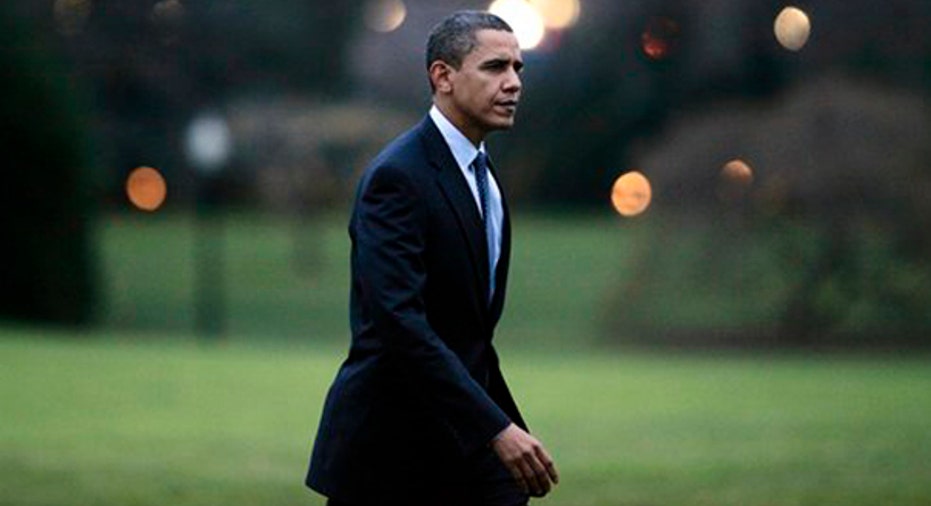Obama Hosts Global Summit on Entrepreneurship

President Barack Obama launched a new effort on Monday to build business and social ties to the Muslim world, but analysts said the need for progress on big issues like Middle East peace would overshadow the initiative.
Obama hosted a two-day Presidential Summit on Entrepreneurship that brought together about 250 successful business and social entrepreneurs from more than 50 countries, most with large Muslim populations, fulfilling a pledge he made in his Cairo speech to the Islamic world last June.Commerce Secretary Gary Locke opened the gathering by challenging the entrepreneurs to take "the tremendous success that all of you have had individually and expand it throughout the Islamic world."
"There are over a billion people living in Muslim-majority countries today, and they represent a vast reserve of underutilized potential in the global economy, both in terms of their demands for goods and services as well as their ability to create technological and social innovations that will drive economic growth and social development," Locke said.
Obama will address the summit at the end of the first day to underscore his commitment to "deepening our engagement around the world with Muslim-majority communities," Deputy National Security Adviser Ben Rhodes said.
While the summit is widely viewed as a positive step that demonstrates follow-through on the Cairo speech, analysts said Obama ultimately would be judged on his handling of key issues in the Muslim world -- the Israeli-Palestinian peace process, Iran's nuclear program, and the wars in Iraq and Afghanistan.
"In some ways Cairo is not going to be fulfilled until you get grander solutions to some of the big geopolitical problems," said Juan Zarate, an analyst at the Center for Strategic and International Studies and an ex-deputy national security adviser to former President George W. Bush."The President is going to be judged by his ability to move those big issues much more so than whether or not he hosts a conference at the White House," he said.
Obama has struggled to advance many of those issues. His effort to revive the Middle East peace process has been hampered by Israeli settlement activity, and his attempts to engage Iran over its nuclear program have been rebuffed.
The administration is pushing ahead with its strategy for the war in Afghanistan despite increasingly brittle relations with Afghan leader Hamid Karzai.
Administration officials point to Obama's steps to wind up the Iraq war, and his fulfillment of pledges made in the Cairo speech -- creating a fund to boost technological development, naming science envoys and holding the entrepreneurship summit.
"These things don't hurt. They're helpful," Zarate said. "But I don't think we should be Pollyannaish about the grand impact or effect of these."
DAVOS CROWD AND MORE
The two-day summit brings together a diverse group of people aged 20 to 79, "everybody from ... the Davos crowd to people that are not traditionally invited to things like this," a senior administration official said.
In addition to Locke, Secretary of State Hillary Clinton, Education Secretary Arne Duncan and other senior U.S. officials will participate in sessions alongside private sector experts like Yahoo! Chief Executive Jerry Yang, Grameen Bank founder Muhammad Yunus and Arif Naqvi, head of Abraaj Capital, the largest private equity firm in the Middle East.
The aim is to bring together successful business and social entrepreneurs from different countries, venture capitalists, development bankers and other business experts to discuss ideas and share experiences with a view toward creating support networks that will help promote development in the region.
The White House has urged groups outside the government to participate by organizing their own related events, and that has spawned more than 30 other sessions by groups such as the National U.S.-Arab Chamber of Commerce, Arab Empowerment and the Middle East Youth Initiative at Brookings.
The focus on social entrepreneurship as well as business entrepreneurship is seen as particularly helpful because it appeals to young people interested in having an impact, and a large proportion of the Muslim world population is under 30.
"The number one priority in the Middle East and North Africa must be job creation," said David Hamod, head of the National U.S.-Arab Chamber of Commerce. "This is a part of the world that has very high youth unemployment and when people don't have jobs, it's easy to get up to mischief."



















